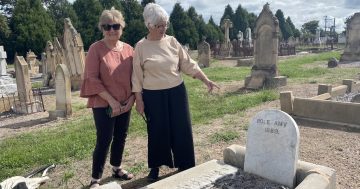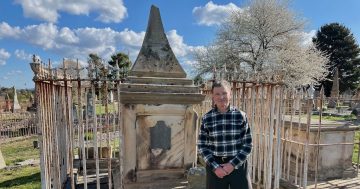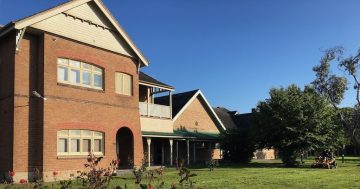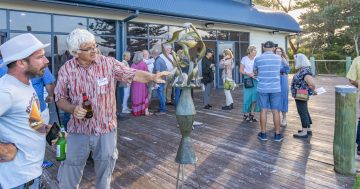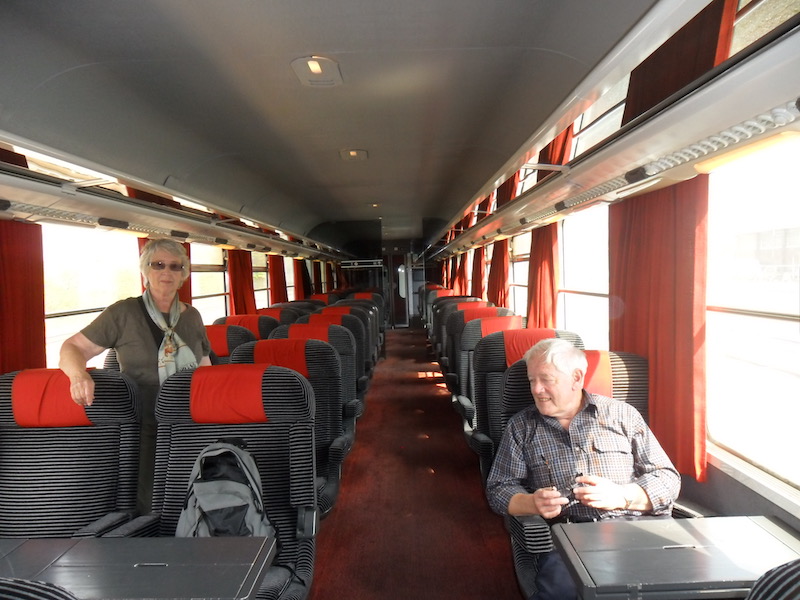
Daphne and David Penalver on the train to Auxerre, France. Photo: Linda Cooper.
In France, a bus driver urged three passengers from Goulburn to take a different route for a smoother, faster journey. They declined, preferring the bumpier, scenic route. The Goulburn trio’s guide David Penalver knew precisely what to expect. His planning was exact, and along with teaching and travelling, guided his life.
About 53 years ago, reuniting with fellow European travellers, he met his future wife, Daphne, a young speech pathologist from Sydney who captured his heart. They married in the spring of 1967, raised two children and later travelled extensively.
“David had good schooling,” said Daphne after his recent death at home. “His passion was teaching. His parents favoured architecture, but his heart wasn’t in it. After we married, we bought a tiny terrace house in Newtown so he could do town and country planning after hours, and he finished the course. Our VW was longer than the house was wide. It was brilliant.
“There were people from old Yugoslavia there, old Australians, Aboriginals, it was an extraordinary experience to live there. [Their son] Adrian was born there.”
During the years, David and Daphne, and occasionally their close friend Linda Cooper, embarked on meticulously planned trips through France, cruising across the Atlantic Ocean, zigzagging across the US aboard trains, and changing at rail junctions for a new direction. In universities and walled mediaeval cities, South East Asian temples, and the kitchen table at home, he studied timetables and guides, found drivers and sketched prolifically.
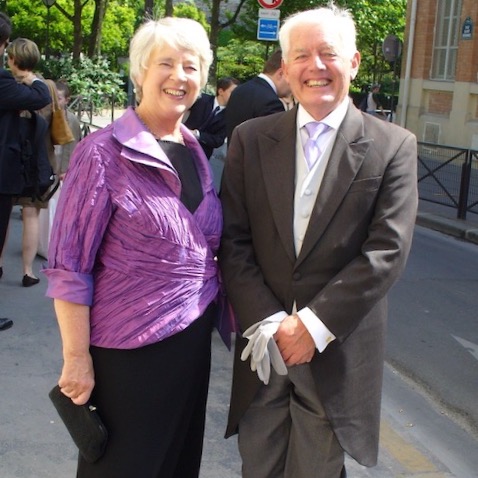
Daphne and David Penalver at their son Adrian’s wedding to Sophie at Sainte Marguerite Church, Paris, France, in May 2010. Photo: Supplied.
Travelling in Europe, seeing so much of Paris, following the old Silk Route and Roman ruins astonished Linda.
“I never thought I would see so much in three weeks,” she said. “We had an apartment in Paris, walking distance to the Eiffel Tower. We walked mostly everywhere, took the occasional bus ride and Seine River boat, caught the Metro to Gare de Lyon, then first-class to Dijon. We stayed in a 17th century building in the old quarter, and shopped at the local markets.”
Pondering over what some travellers had told him is what influenced David and Daphne’s key decisions: leaving the workforce, turning stables into a place to retire, teaching at orphanages and donating significantly to them. For the past 20 years, the Penalvers, as well as Linda and other likeminded people formed the Goulburn Heritage Group.
After studying and questioning Goulburn’s development applications and planning policies, they offered considered submissions, even if it meant a more bumpy and scenic project for proponents, and despite the city’s civic drivers preferring a smoother, faster development journey.
Fighting for every breath four days before he died, David said: “It just came home to me a week or so ago: we are valuing heritage in terms of money – ‘how many millions of dollars is this?’ rather than an appreciation of what went on there.”
A friend once recalled him travelling with a money belt with $9000 to take to nuns to buy things for children in an orphanage.
Relocating jobs and homes from Sydney to Canberra, and then Goulburn, they settled on buying ‘Yandilla’, an 1850s rubble-stone house with cedar doors and skirtings, and vast rooms on a big block of land in Clifford Street, with four-bay horse stables and tac room in the backyard, with hay storage above.
David looked after their children, Adrian and Marion, grocery shopped, hung out the washing, cooked meals and joined the Parents and Citizens Association at Bourke Street School (Goulburn Public School).
A creative arts course honed his drawing skills. Later he taught technical drawing, French and other subjects. He worked as a patient representative at Goulburn Base Hospital, and was an official visitor to Goulburn jail.
About 20 years ago, the Penalvers cleared the stables out of toys and other stored items and extended the building, with big windows and a bay window. They subdivided their block, sold ‘Yandilla’ and enjoyed their flower-filled garden and their neighbour’s huge green peppercorn tree, silvery in the breeze.
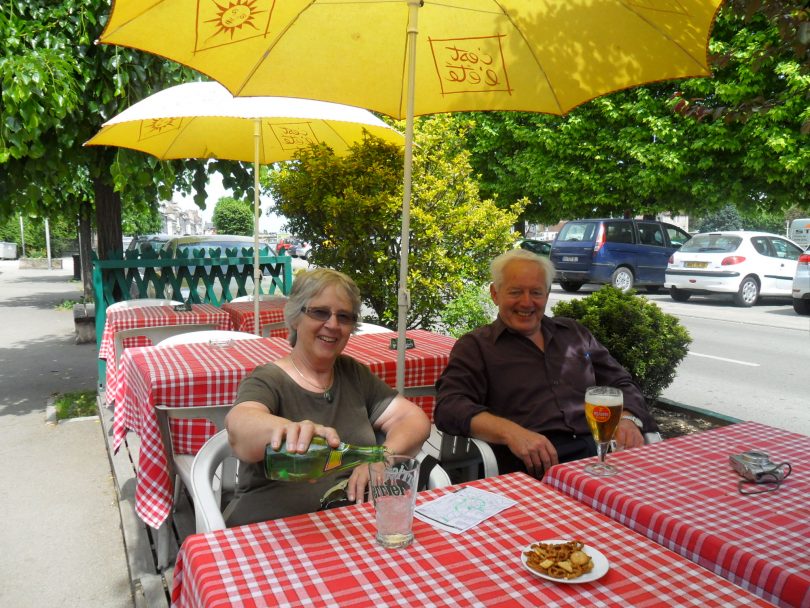
Daphne and David Penalver relaxing at an outdoor cafe at Ameins, France. Photo: Linda Cooper.
Born in Bromley, Kent, UK, in 1939, as World War II was starting, David remembered descending into the family’s Anderson shelter under the house as London was bombed. He came to Australia when he was nine years old. In later years, travel, sketching and collaborating on books about heritage and architecture with Daphne filled his life with joy.
“On the whole, we were just a good fit – we just seemed to gel,” said Daphne.
Years ago in Kent, David began looking for a particular bus but did not expect to find it. Thereafter he referred to that route when speaking of his own immortality. When his time arrived, Daphne emailed friends and family: “The 227 bus, destination unknown, arrived at 1:30 this afternoon to pick up David – the road was sometimes bumpy, then smooth … he left in peace.”
Original Article published by John Thistleton on The RiotACT.



